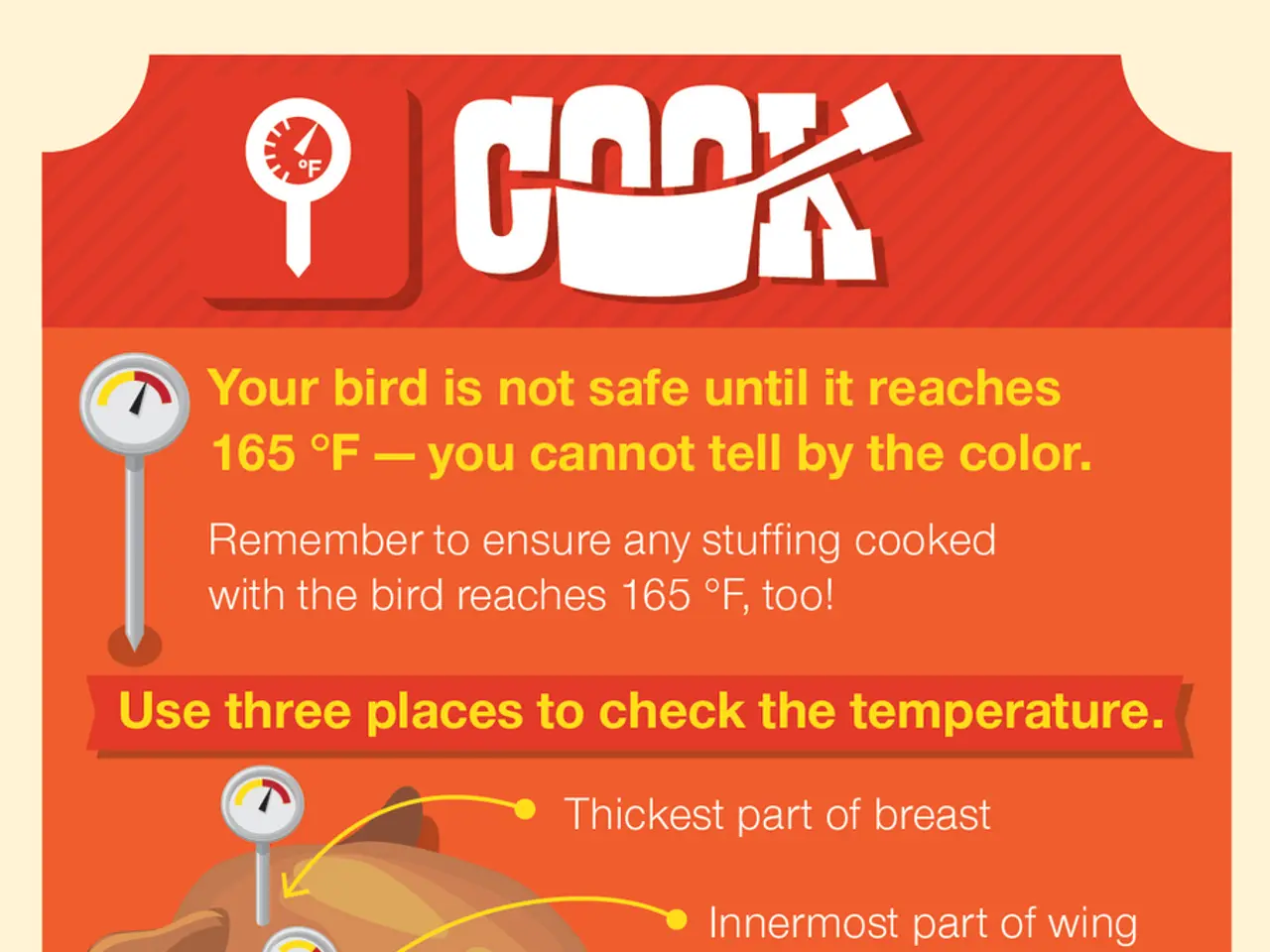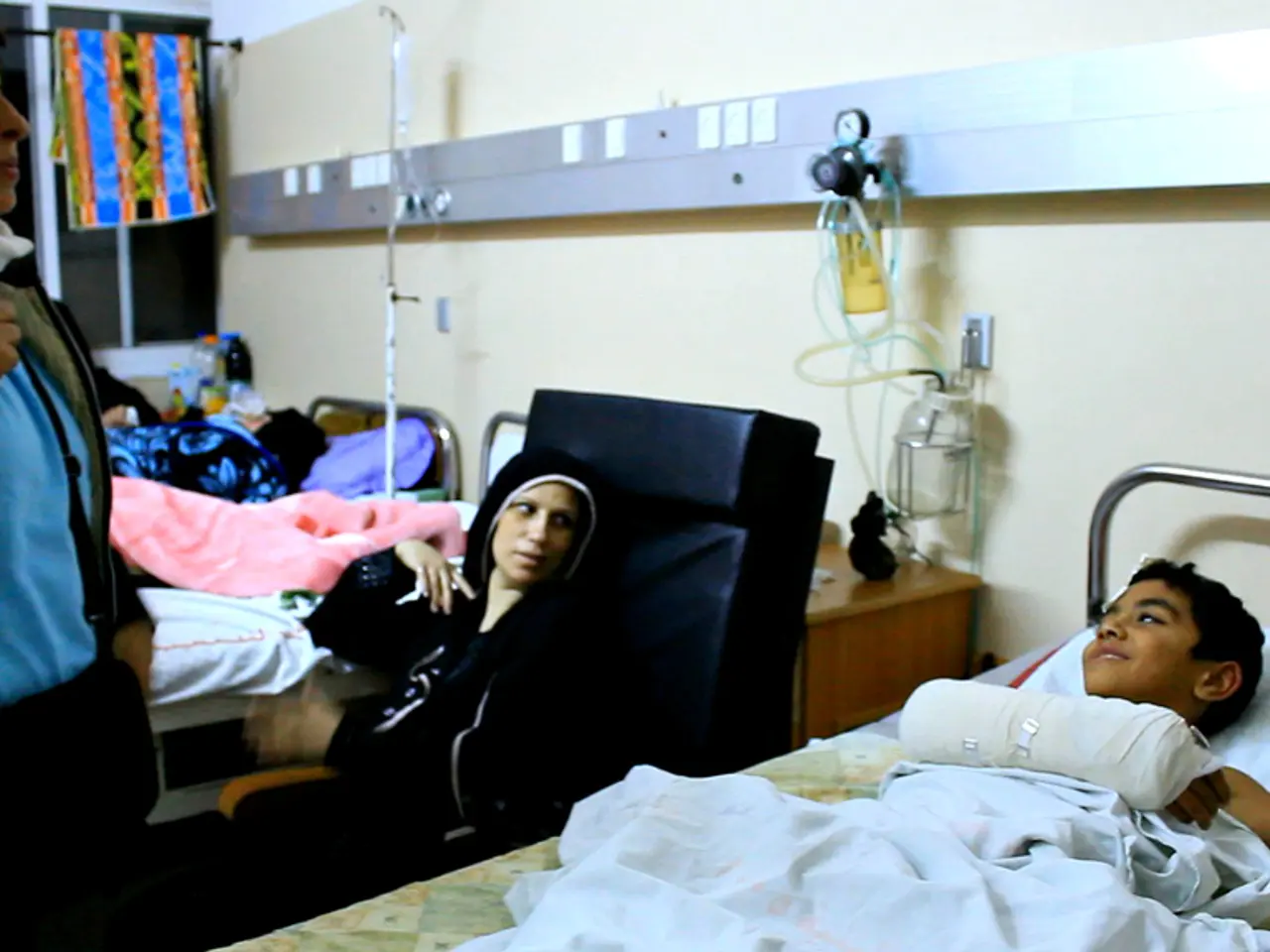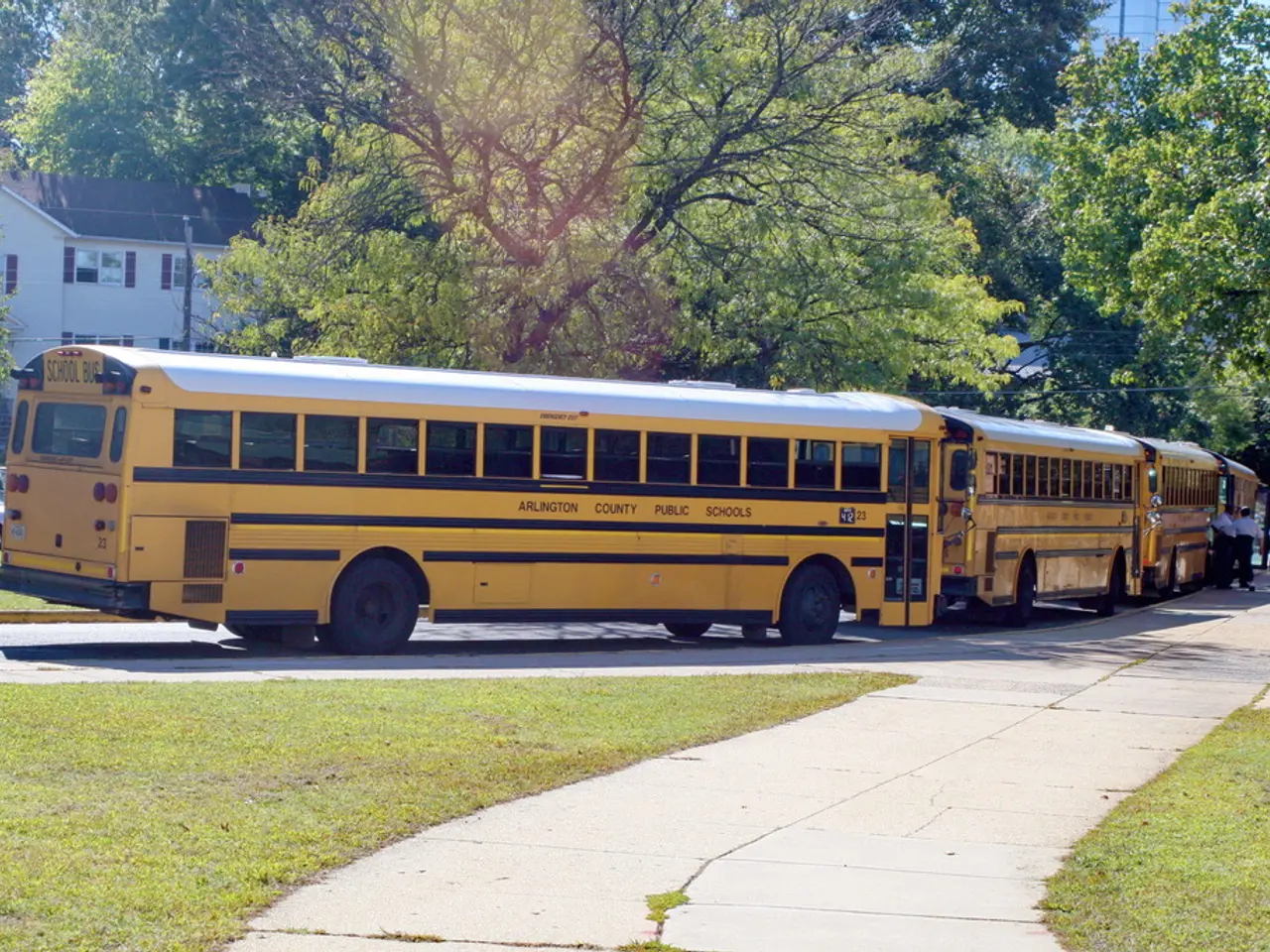Keeping Cool in Germany's Summer Heatwave: Health Minister's Advice for Sports Enthusiasts
Avoid drinking alcohol and grilling food during hot weather, as advised by Nina Warken.
As the mercury rises and summer comes knocking in Germany, our Federal Health Minister, Nina Warken, unveils the nation's second heat protection plan, with a special emphasis on recreational sports. Gearing up for the summer games, athletes, spectators, and enthusiasts alike need to be on their toes to ensure they don't fall victim to the scorching temperatures.
In collaboration with the German Olympic Sports Confederation (DOSB), Minister Warken has debuted three comprehensive heat protection plans. These plans aim to protect even the most vulnerable among us, such as the elderly, the chronically ill, pregnant women, young children, and athletes. The plans offer practical tips to help these groups stay safe during the hot months of the year.
With close to 29 million sports enthusiasts in Germany, the focus is heavily on recreational sports. In the introduction, Health Minister Nina Warken emphasizes that those who engage in sports should be vigilant when temperatures skyrocket. The heat protection plan offers a wealth of tips and recommendations, spread over 13 pages:
- Criteria for suspending and cancelling competitions
- Provision of buckets or watering cans filled with cold water
- Offering free sunscreen and sunglasses for kids
- Closing exposed sports facilities during extreme heat
- Keeping sick athletes out of competitions
- Extending summer vacations and shortening winter breaks
- Refraining from serving alcoholic beverages and drinks containing sugar, caffeine, and taurine
- Avoiding events with open fires or grills
Pharmacies are encouraged to install water dispensers, increase home deliveries during hot weather, reach out to at-risk individuals, and warn people about the dangers of heat. They are also advised to improve their facilities with more blinds, air conditioning, or ventilation systems.
Psychotherapeutic practices should keep an eye on particularly at-risk individuals and review medication plans. Appointments with these patients should be scheduled during the cooler parts of the day, either early morning or late evening.
In 2023, the first nationwide heat protection plan was introduced by Federal Health Minister Karl Lauterbach, while France debuted its heat protection plan as early as 2004. Regrettably, each year, several thousands of people in Germany dies due to the consequences of extreme heat during the summer months.
- General Recommendations for Recreational Sports During Extreme Heat:
- Hydration and Cooling: Provide participants with ample water and cooling measures, like shade, cool towels, or misting stations.
- Scheduled Activities: Plan activities during cooler hours in the morning or evening to avoid peak heat.
- Heat Acclimatization: Encourage gradual acclimation to hot conditions over several days to reduce the risk of heat-related illnesses.
- Monitoring and Education: Educate participants about recognizing signs of heat exhaustion and heat stroke, and have monitors or medical personnel on hand.
- Appropriate Clothing: Advise the use of light, loose-fitting clothing that allows for good airflow and helps keep the body cool.
- Regular Breaks: Schedule regular breaks in shaded areas to allow participants to rest and cool down.
For more specific recommendations from Nina Warken or the German Olympic Sports Confederation, consult their official publications or statements.
- In line with the comprehensive heat protection plans, it is crucial for community policies to address the importance of maintaining proper hydration and implementing cooling measures in recreational sports settings.
- In the spirit of workplace-wellness, employers in sports-related industries should adopt health-and-wellness policies that prioritize heat safety during the summer months, including providing ample water and implementing scheduled activities during cooler hours.
- As a step towards environmental-science, it would be beneficial for these policies to foster the adoption of fitness-and-exercise practices that minimize our carbon footprint, such as promoting the use of public transportation or carpooling for sporting events to reduce emissions.
- To tackle climate-change concerns, the science community could invest in research to develop heat-resistant sports facilities and athletic wear, catering to the increasing need for adequate equipment during extreme heat conditions.




